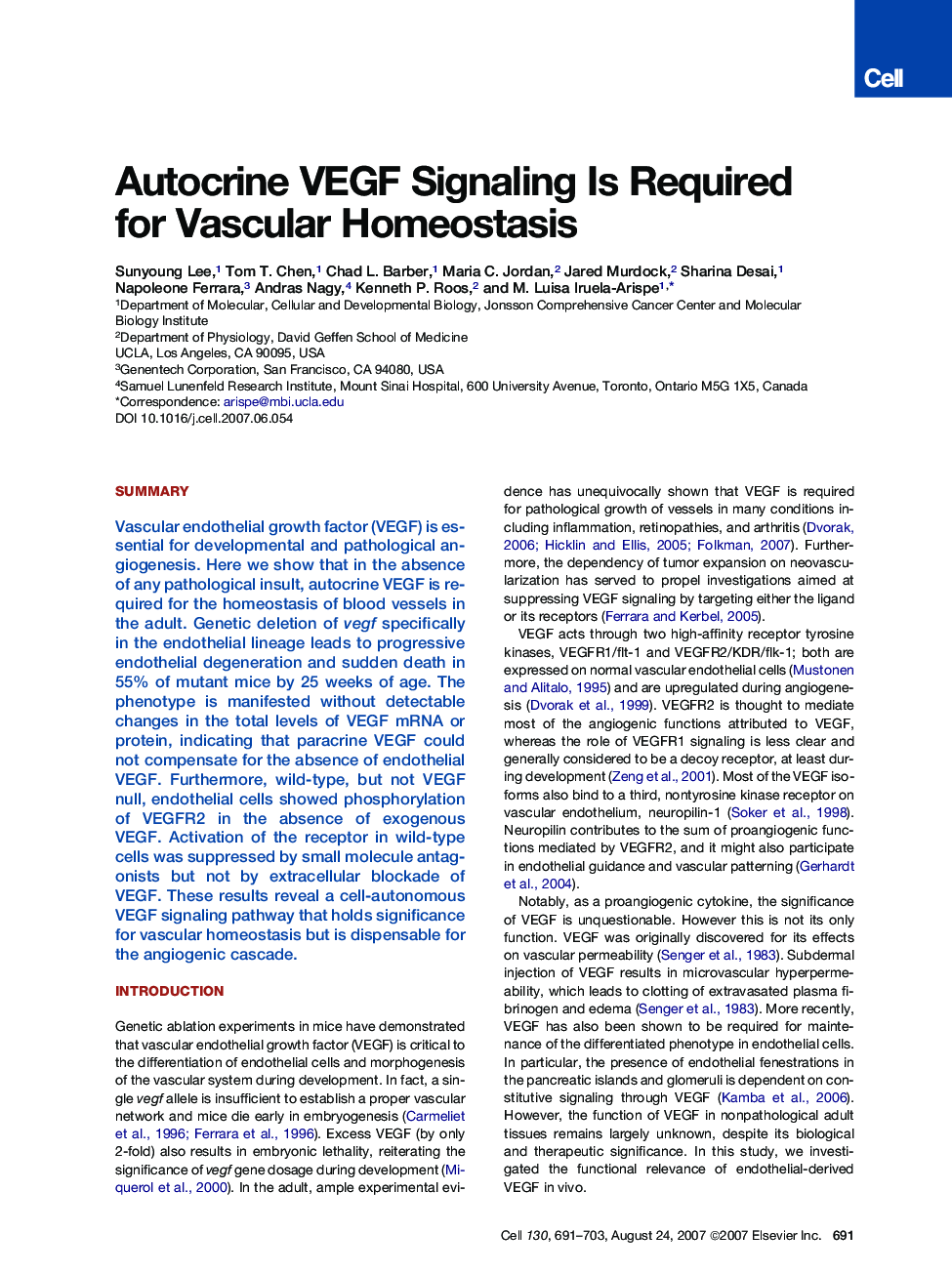| Article ID | Journal | Published Year | Pages | File Type |
|---|---|---|---|---|
| 2037740 | Cell | 2007 | 13 Pages |
SummaryVascular endothelial growth factor (VEGF) is essential for developmental and pathological angiogenesis. Here we show that in the absence of any pathological insult, autocrine VEGF is required for the homeostasis of blood vessels in the adult. Genetic deletion of vegf specifically in the endothelial lineage leads to progressive endothelial degeneration and sudden death in 55% of mutant mice by 25 weeks of age. The phenotype is manifested without detectable changes in the total levels of VEGF mRNA or protein, indicating that paracrine VEGF could not compensate for the absence of endothelial VEGF. Furthermore, wild-type, but not VEGF null, endothelial cells showed phosphorylation of VEGFR2 in the absence of exogenous VEGF. Activation of the receptor in wild-type cells was suppressed by small molecule antagonists but not by extracellular blockade of VEGF. These results reveal a cell-autonomous VEGF signaling pathway that holds significance for vascular homeostasis but is dispensable for the angiogenic cascade.
